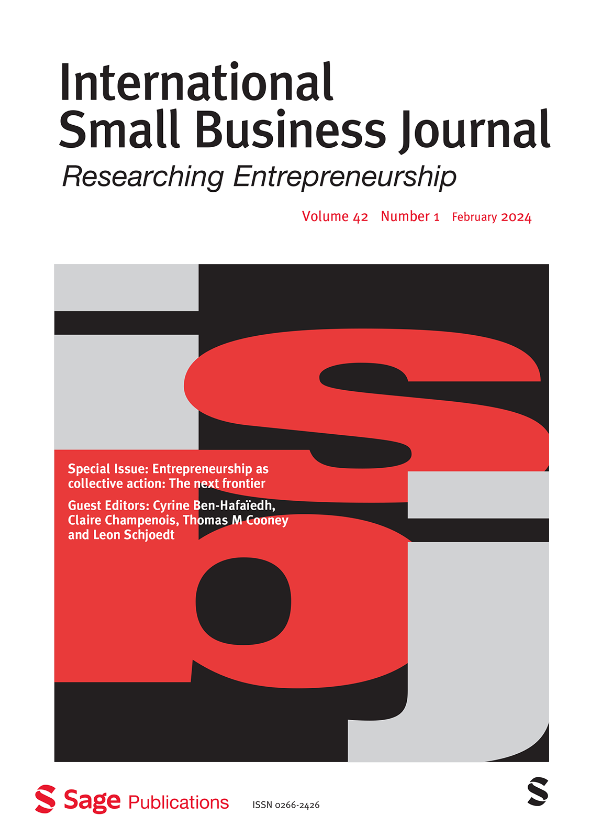要素市场、制度质量与企业形式化:创业阶段经济条件的偶然效应
IF 3.9
2区 管理学
Q1 Business, Management and Accounting
International Small Business Journal-Researching Entrepreneurship
Pub Date : 2022-07-06
DOI:10.1177/02662426221101021
引用次数: 2
摘要
非正规经济对经济活动作出了重要贡献,但对影响非正规企业正规化意愿的国家一级条件的了解有限。本文整合了制度理论和印迹假说的见解,解释了要素市场和制度质量如何影响非正式企业随着时间的推移正规化的可能性,以及这些影响如何取决于创始阶段的经济条件。世界银行企业调查(World Bank Enterprise Surveys)的数据包括对73个国家2477家企业的8005次观察,结果表明,更好的要素市场和制度质量增加了正规化的可能性,而这些关系在创始阶段的有利经济条件下得到加强。要素市场和制度质量之间的低相关性支持了分离这些维度的重要性,而创始阶段经济条件的调节作用支持了印记的重要性。本文章由计算机程序翻译,如有差异,请以英文原文为准。
Factor markets, institutional quality and firm formalisation: The contingent effect of economic conditions at the founding stage
The informal economy makes an important contribution to economic activity but knowledge about the country-level conditions that influence an informal firm’s willingness to formalise is limited. This article integrates insights from institutional theory and the imprinting hypothesis to explain how factor markets and institutional quality affect the likelihood that informal firms formalise over time, as well as how these effects are contingent on economic conditions at the founding stage. Using data from the World Bank Enterprise Surveys comprising of 8005 observations from 2477 firms in 73 countries, the results suggest that better factor markets and institutional quality increase the likelihood of formalisation and these relationships are strengthened by favourable economic conditions at the founding stage. The low correlation between factor markets and institutional quality supports the importance of separating these dimensions, while the moderating effect of economic conditions at the founding stage supports the importance of imprinting.
求助全文
通过发布文献求助,成功后即可免费获取论文全文。
去求助
来源期刊
CiteScore
10.80
自引率
8.50%
发文量
49
期刊介绍:
The International Small Business Journal (ISBJ) is a leading peer-reviewed journal renowned for publishing high-quality original research papers on small business and entrepreneurship. It prioritizes research-based studies that contribute to theory development, critical understanding, and policy formulation related to small firms.
ISBJ papers encompass theoretical, methodological, and empirical studies from various disciplines and perspectives, aiming for research excellence in the field. The journal provides a critical forum for world-class contributions analyzing entrepreneurship and entrepreneurial behavior.
This refereed journal is valuable to academics, policymakers, analysts, government and business officials, small business representative bodies, and support agencies seeking to gain insights into the sector, trade, business institutions, and related matters.

 求助内容:
求助内容: 应助结果提醒方式:
应助结果提醒方式:


